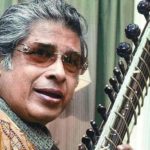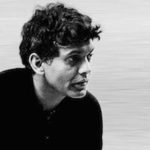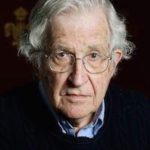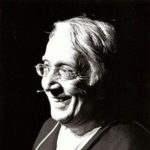Be the first to review “Raga Adana, Lalit, Desh & Bhairavi” Cancel reply
Raga Adana, Lalit, Desh & Bhairavi
Adana and Lalit were recorded in Delhi with Fayyaz Khan on tabla. Desh and Bhairavi were recorded in Kolkata in 1964 with Chatur Lal on tabla.
These four masterpieces are each about 7 minutes but within that time frame Sitar Maestro Chuadhuri packs in a stunning amount of musical information.
If there was ever an example of much in little, this recording is it. I sat in on the Delhi date. It was an amazing display of virtuosity. The note patterns are lightening quick but always clear and lyrical. The Bhairavi recording changed my life. I was in Chamba in the Himalayan foothills in early 1967 when I heard it. By that time I was trying to learn sitar. I copied some of the note patterns. I had to go to Delhi to renew my visa when by chance I met Debu Chaudhuri at Delhi University. He invited me into his office in the Shankar Lal Music Faculty. I told him I loved his Bhairavi and proceeded to play a bit for him. He suggested I take up sitar seriously and study with him. And I did for almost the next three years. – David Barsamian
Speaker

Debu Chaudhuri
Winner of the Padma Bhushan, one of India’s most prestigious awards, Pandit Debu Chaudhuri, was a legendary figure in Indian classical music. He was born in 1935 in what is now Bangladesh. He took up sitar at an early age. He was a disciple of the great sitar maestro, Ustad Mushtaq Ali Khan of the Senia Gharana, the traditional school of Indian classical music named after Tansen, the father of Indian music. Debuji’s playing was noted for its sweetness and sensitivity. He was the long-time Dean of Fine Arts and Head of the Department of Music at Delhi University. He was the beloved guru of AR’s David Barsamian. Debuji and his son Prateek, also a noted sitar virtuoso, both passed away in New Delhi during the Covid-19 pandemic in May 2021.






Reviews
There are no reviews yet.